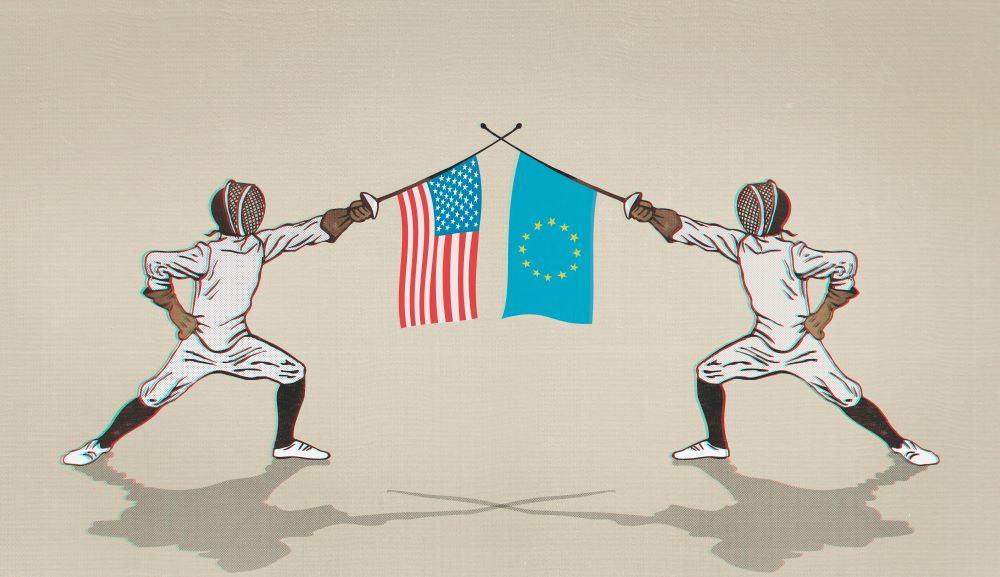
The EU and US have reached an agreement to extend the suspension of tariffs on EU steel and aluminium products, as well as the possibility of retaliatory European measures, until March 2025.
The 15-month period – announced by the European Commission yesterday (19 December) - extends until well beyond the European Parliament elections in May next year and the US presidential election in November. The next US president will be inaugurated in January 2025.
“The EU prolongs the suspension of rebalancing tariffs in return for the US extending the suspension of its tariffs for historical trade volumes that are reflected in the Tariff-Rate Quota (TRQ) system established in January 2022,” the Commission said. “In addition, the US agreed to provide for further exclusions from the tariffs for EU exporters.”
It said the agreement will save €1.5 billion in duties annually for EU aluminium and steel exporters.
Trump legacy
The 25% US tariffs on EU steel and 10% levies on aluminium were imposed under former president Donald Trump in 2019 and were followed by EU retaliatory tariffs on a range of US goods, including Harley Davidson motorcycles and bourbon whiskey.
The US and EU reached an agreement to suspend tariffs in November 2021, pledging to tackle trade imbalances in the aluminium and steel sectors by the end of this year. Though negotiations on this stalled this year, the US offered to extend the suspension to “allow more time for talks on creating a system to counter overcapacity and promote less carbon-intensive steelmaking,” Reuters reports.
Brad Setser, a trade expert for the Washington-based Council on Foreign Relations think-tank, told the BBC that this extension was always an “obvious” solution in the absence of a full resolution on overcapacity.
"Returning to open conflict isn't in the interest of the US or the EU", he said.
Welcome news
IOE&IT EU public affairs lead, Fergus McReynolds, said the extension will be “welcome news for traders” as it will give them some “certainty” over the next 15 months.
“While both sides confirmed that negotiations will continue to find a permanent solution, the extension now takes the suspension beyond the next EU and US elections next year, clearly taking the pressure of the political negotiations.
“The challenge now will be, following the outcome of both elections, whether the EU and the US can find long-term agreements on how to manage global trade in steel together.”
UK situation
The UK was a member of the EU when Trump initially imposed the steel and aluminium tariffs in 2018 and was party to the EU’s retaliatory measures.
It secured its own deal to lift these tariffs and pause the UK’s own retaliatory measures in March 2022, which came into force in June that year.



